Opeth's Fredrik Akesson: the 11 records that changed my life
Guitar classics aplenty as the Swedish supremo names his essential albums
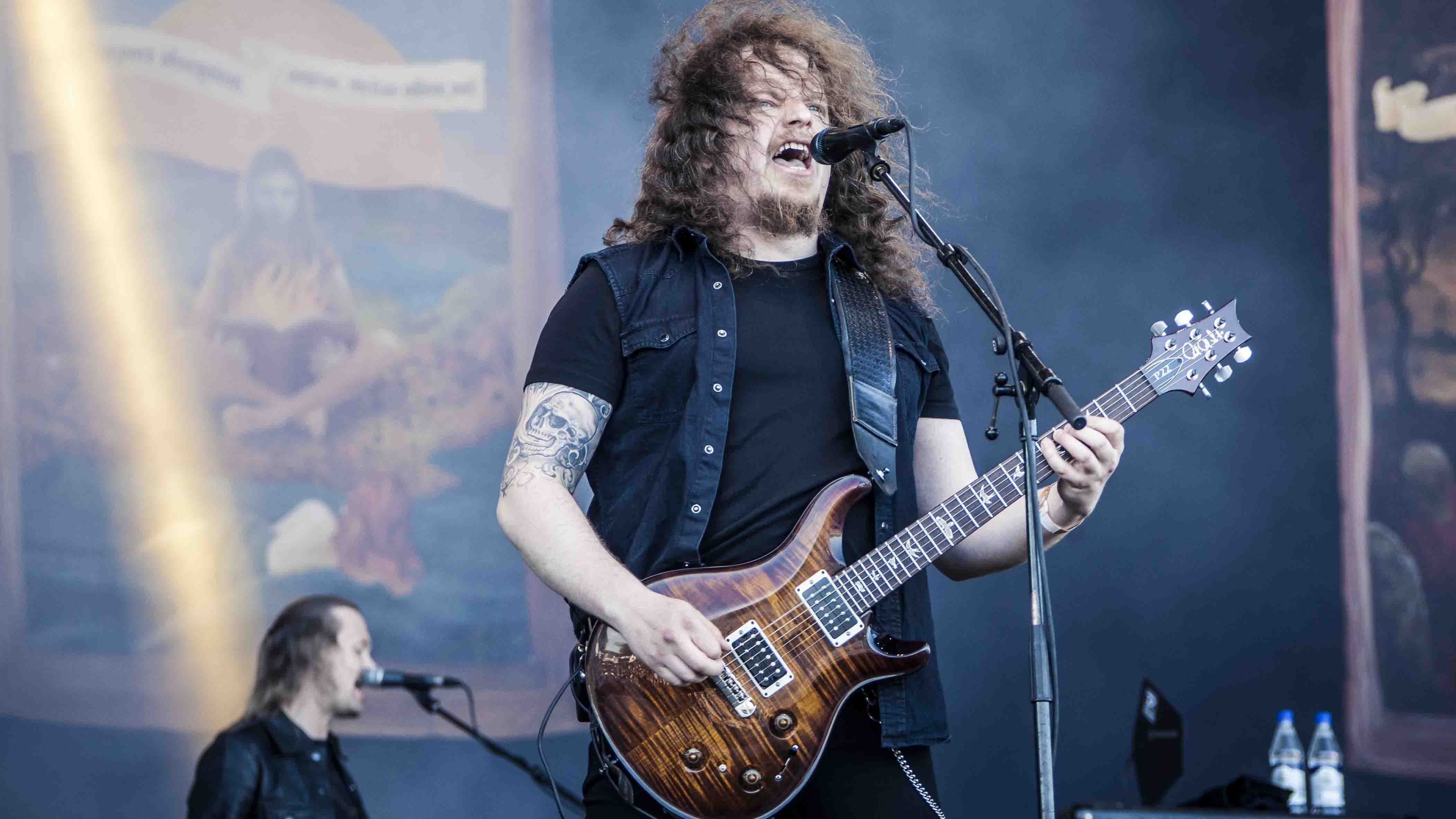
Sorceress
If the best bands are the ones that continue to keep surprising us, then Opeth are in a league of their own. Even as far back as their 1995 debut, there was always something brilliantly bold and daring about their take on heavy music.
All these years later, returning with twelfth full-length Sorceress, the progressive Swedes continue to drift into the great psychedelic beyond, offering a cosmic maze of twists and turns throughout its 11 tracks.
We wanted the guitars to be a bit more aggressive and up front this time round
"We wanted the guitars to be a bit more aggressive and upfront this time round," says guitarist Fredrik Akesson.
"There was a bunch of amps in the studio; we went with a hand-wired Marshall Bluesbreaker for the more clean tones. We also used a Silver Jubilee - we were actually after the red one that has more gain, but couldn't find it!
"I also tried using a Friedman Brown Eye, which I bought secondhand. It's basically a classic Marshall sound with a bit more gain to it, based on the original Plexis. We used that amp quite a lot; it sounded great."
As for guitars, fans may have noticed something different about the album's title track and lead single - there's a low A chugging away at the bottom of its heavier riffs.
It's the lowest the band have tuned over their 26-year career, which has been almost entirely recorded and performed at A440 concert pitch save for the odd drop-D song. That said, there wasn't a seven-string in sight...
"What we did is very simple," offers Akesson, "it's just the low E string taken down to A - so you have an octave on your two bottom strings. We wanted to sound a bit sludgy and used thicker strings to get that heavier, grittier sound.
"I feel that song came out very different compared to earlier Opeth stuff - it's almost more muscle-rock! We mainly used our PRS guitars, plus an old 1972 Gibson SG which sounds great, and the same 1955 Les Paul Junior we used on [last album] Pale Communion."
[Sorceress] came out very different compared to earlier Opeth stuff - it's almost more muscle-rock!
The album features some of Akesson's most ferocious leads yet - especially on fifth track Chrysalis, which sees him duel against keyboardist Joakim Svalberg in a whirlwind of disorientating jazz-rock grooves.
While his runs accelerate into blistering speeds, there's also an intense musicality about them - almost reminiscent of fusion virtuoso Shawn Lane's mind-boggling mastery of the instrument.
"I've been practicing this pick-swirl technique using pentatonics," grins Akesson.
"I'll use down, down, up quite a lot - which you can have loads of fun with. I find it can help me play ridiculously fast compared to, say, alternate picking... You just need to relax your wrist.
"I tend to use more strict alternate picking at home and blend all the techniques with picking and legato for live or whenever I want to feel more comfortable. Earlier on, I studied Paul Gilbert's first few instructional videos and they were really useful for playing that way. They still are - I would recommend them to anybody!"
Here, the guitarist talks us through the 11 albums that shaped his life...
Sorceress is out on 30 September via Nuclear Blast.
Don't Miss
Opeth's Mikael Akerfeldt: my top 9 tips for guitarists
Mikael Akerfeldt on smashing his first guitar and onstage accidents
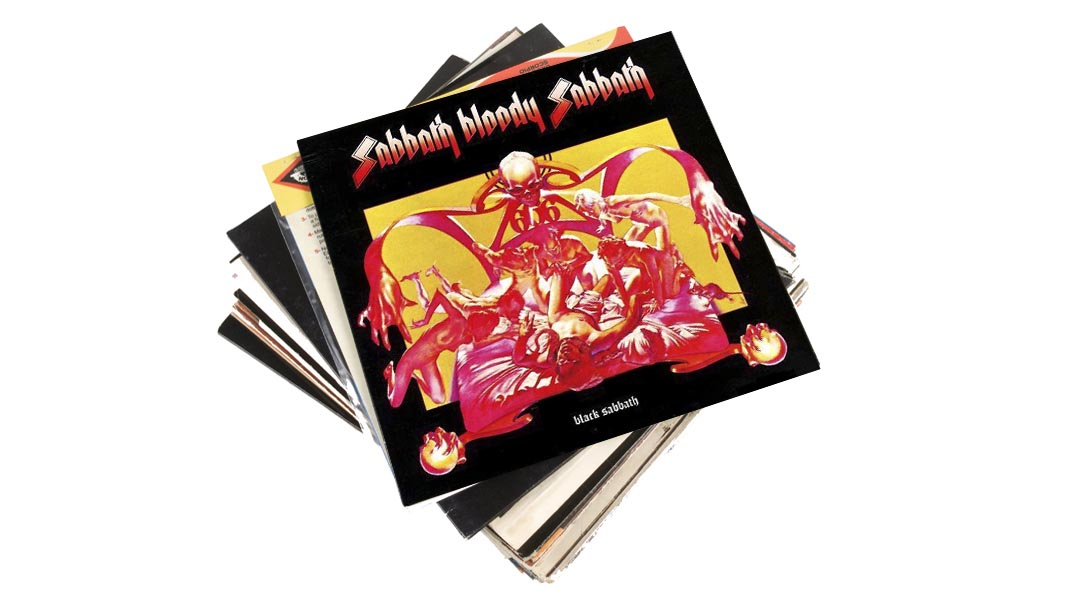
1. Black Sabbath - Sabbath Bloody Sabbath (1973)
"Sabbath Bloody Sabbath is such an epic album because it showed where they were heading - towards more psychedelic and experimental stuff.
"I've always loved Tony Iommi's playing; he's one of those guys that keeps getting better and better. He's like Jeff Beck in that sense, always improving. You could never accuse him of stagnating. Spiral Architect, Killing Yourself To Live... there are so many brilliant tracks on this one.
These albums have been a huge influence on Opeth
"They were and still are incredibly important to the scene of heavy metal. These albums have been a huge influence on Opeth - they were very ballsy and experimenting a lot.
"We just had Will Malone, who did the string arrangements on Sabbath Bloody Sabbath, work with us on Sorceress for the track The Seventh Sojourn - which was very cool! He'd worked on a few other Sabbath albums, produced the first Iron Maiden album, as well as more recent stuff like The Verve; we were very happy he accepted our invitation to do strings!"
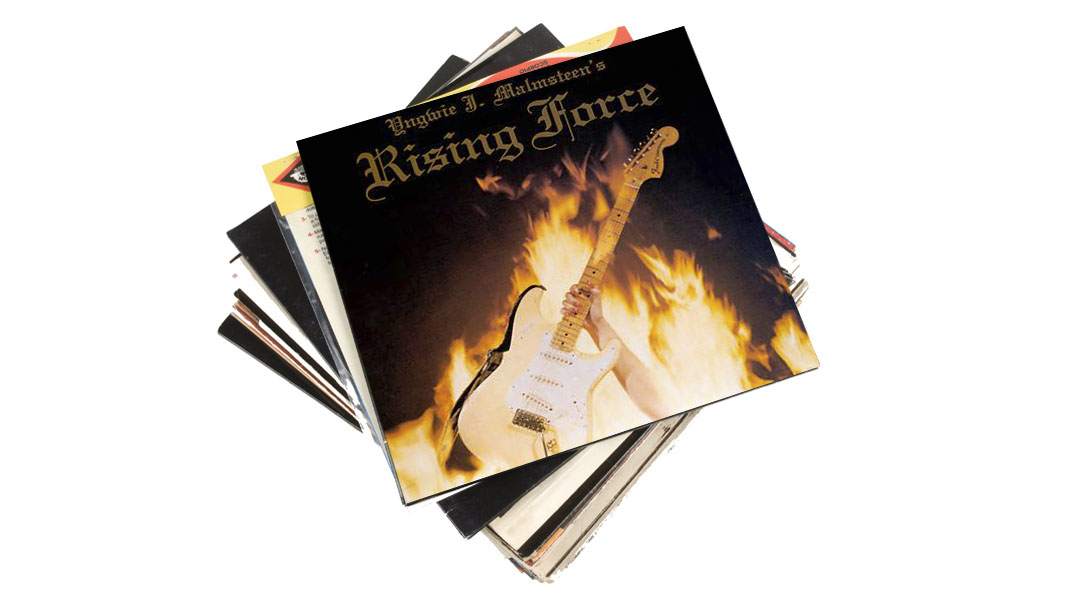
2. Yngwie Malmsteen - Rising Force (1984)
"I remember when this came out, it was totally out-of-this-world to us kids back then.
"I was starting to get into practicing more and I was really into Yngwie's influences - the guys like Uli John Roth, Ritchie Blackmore, even Al Di Meola. But he took all of that to another level somehow... me and all the other kids in my area were practicing like mad, like a big guitar competition!
"I started out with a couple of songs just to see if I was able to pull it off. There were a lot of people trying to copy him 100% note-for-note, but I never really wanted to take it that far.
Yngwie is such an aggressive player, a proper take-no-prisoners kinda guy
"He always had great tone, a great sense of melody and perfect timing. Yngwie is such an aggressive player, a proper take-no-prisoners kinda guy. He doesn't always use alternate picking all the time like people think; he does a bit of that pick swirling stuff that Shawn Lane was famous for."
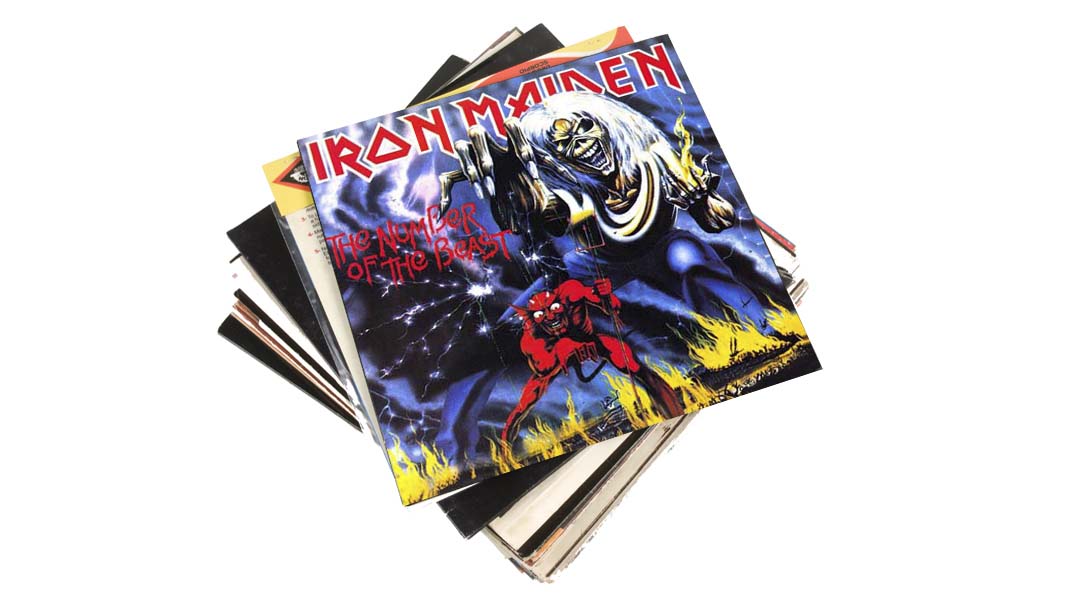
3. Iron Maiden - The Number Of The Beast (1982)
"When I first heard the title track, it blew my mind. I also got Piece Of Mind on vinyl, which I'm a big fan of, too - songs like Flight Of Icarus and Where Eagles Dare were hugely inspiring to me. I love both Adrian Smith and Dave Murray's lead playing.
"We got to support them in Sweden this summer, which was kinda shocking as it was our first gig in nine months... and there was only about 56,000 people there, haha!
"It was so surreal. We got to play for an hour, and it was a tough crowd to please - they were there to see Maiden of course - but they seemed interested. We didn't get any bottles of piss thrown at us, at least!"
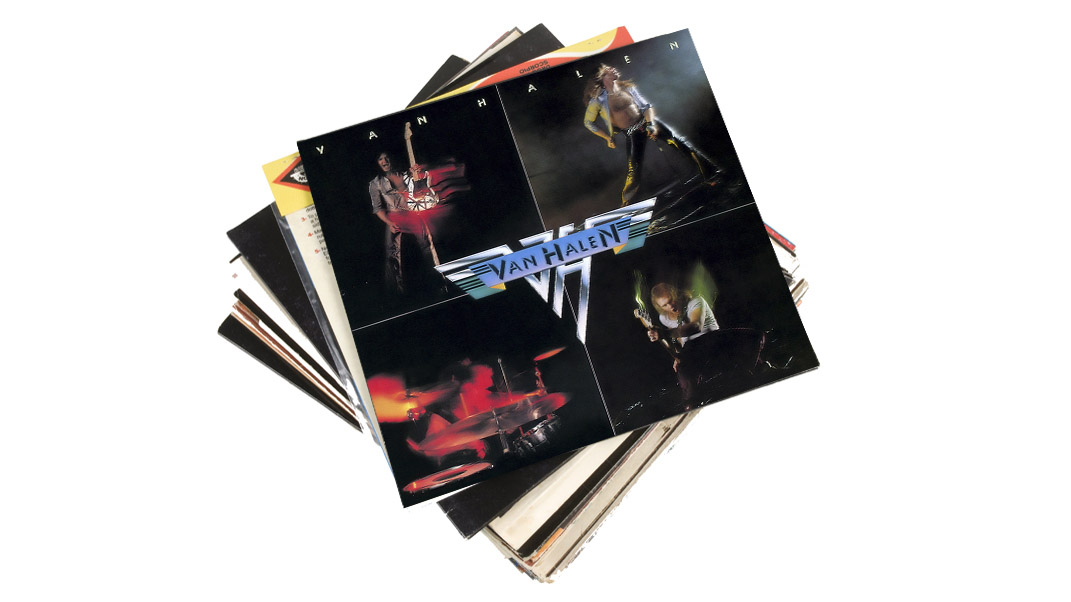
4. Van Halen - Van Halen (1978)
"The guitar tone on this was, and still is, just unbelievable. In fact, it all was: the riffs, the solos, the vocals... all amazing and groundbreaking for its time.
"Eruption is still, to this day, one of the best instrumental guitar solos ever put to tape. It demands your attention whenever you hear it, which is definitely rare!
"Atomic Punk is one of my favourite tracks on this album - it has that incredibly raw guitar sound on it. There are a couple of tracks like that on their 1984 album too, like House Of Pain. He uses this pick scratch with a Phase 90 to get those crazy, washy tones. It's a classic album."
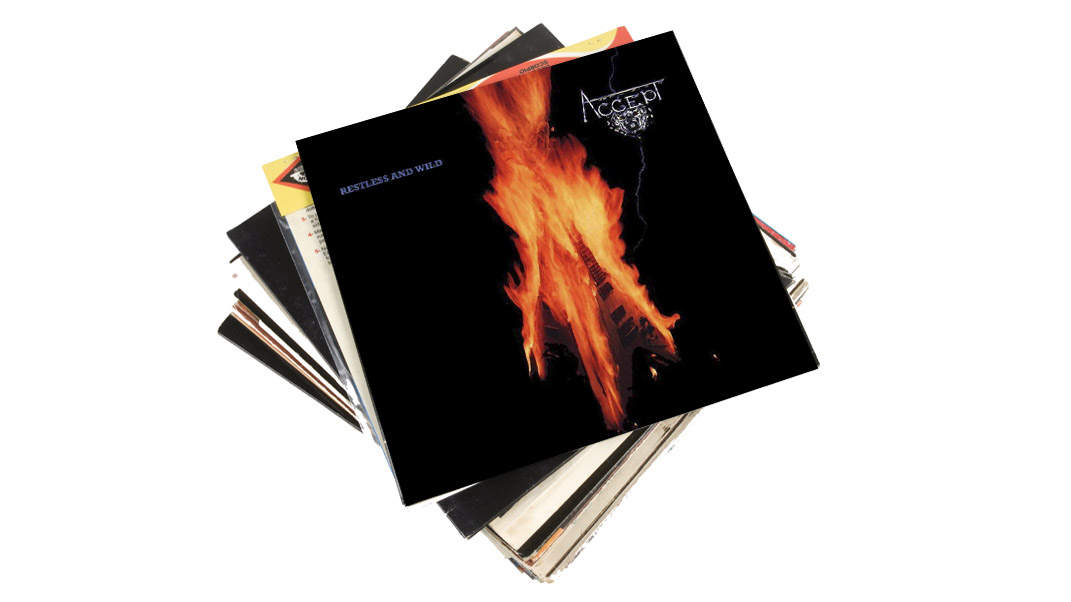
5. Accept - Restless And Wild (1983)
"I'm being a bit nostalgic with these choices, but the idea is to go for the ones that shaped my interests, so I have to pick some Accept.
"Restless And Wild, the album with Fast As A Shark on it, was a big one for me. It felt really rebellious for its time. There's a lot of Schenker-inspired stuff on this album, and Wolf Hoffman is hugely influential himself, of course...
"When I was nine years old, I remember there was a 'Happy Hour' at my school where you got to play a song to the class. I chose Fast As A Shark, which starts with old German music and goes into Udo Dirkschneider's piercing scream... My teacher was really strict, and her face during the transition was priceless!"
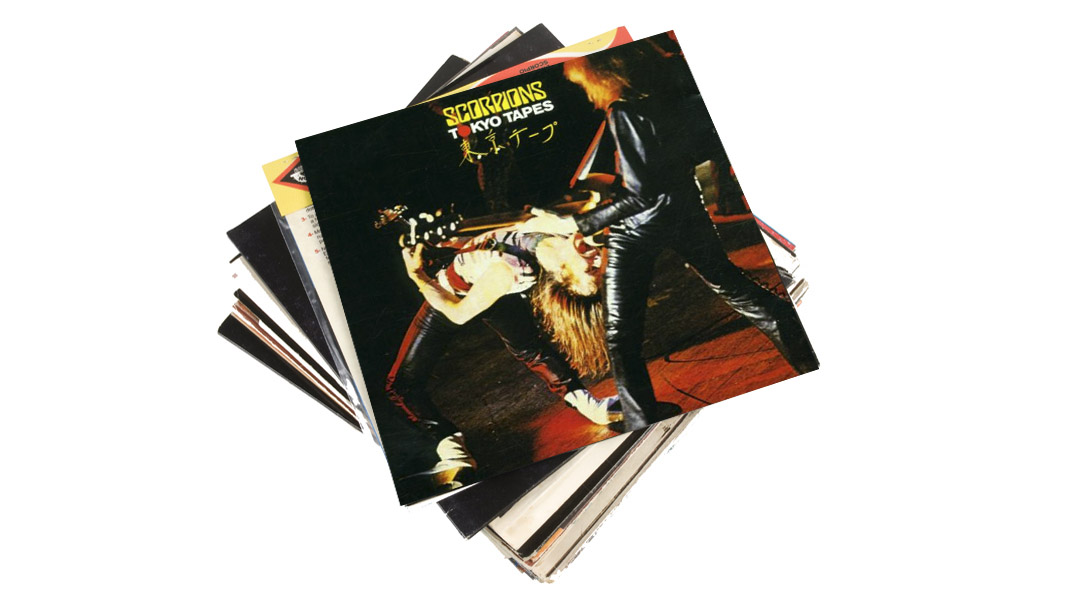
6. Scorpions - Tokyo Tapes (1978)
"I'm keeping this all very guitar-orientated here! I'm a big Scorpions fan and used to listen to their Tokyo Tapes live album a lot, as well as In Trance and Taken By Force.
"One of my favourite solos of all time is on the song Catch Your Train... I love the way Uli Jon Roth has this fighting kinda guitar sound - not much distortion but almost more aggressive because he had to pick really hard to get notes to pop out where he wanted them. It's like using your hands for gain!
"The stuff he was doing back then was insane, and his solo stuff like Earthquake and Fire Wind is killer, too. He was very innovative, taking that Hendrix influence and making it more classical."
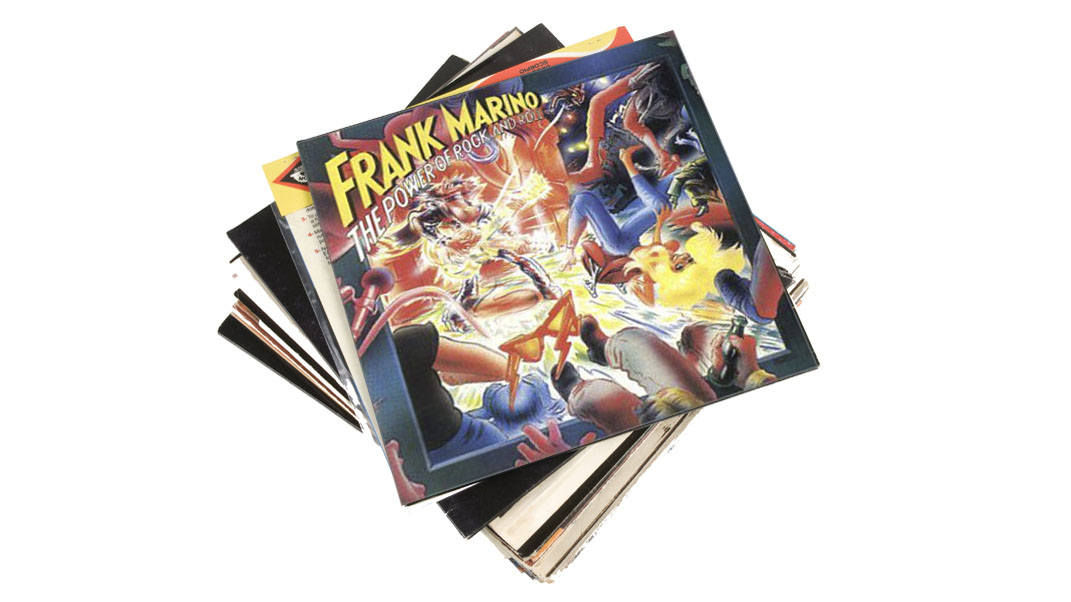
7. Frank Marino - The Power Of Rock And Roll (1981)
"I love the way Frank Marino shreds on this album, especially the last song Ain't Dead Yet. It's this pentatonic frenzy that goes up to 11, indeed! He just has endless control and musicality.
"I met him once, too, which was really cool - I was invited to his house and got to check out all his amps. He builds his own pedalboards and stuff - that's a true guitar legend right there.
"It's hard to pick just one of his records; I like a lot of his other ones and his live albums, too... they're all amazing!"
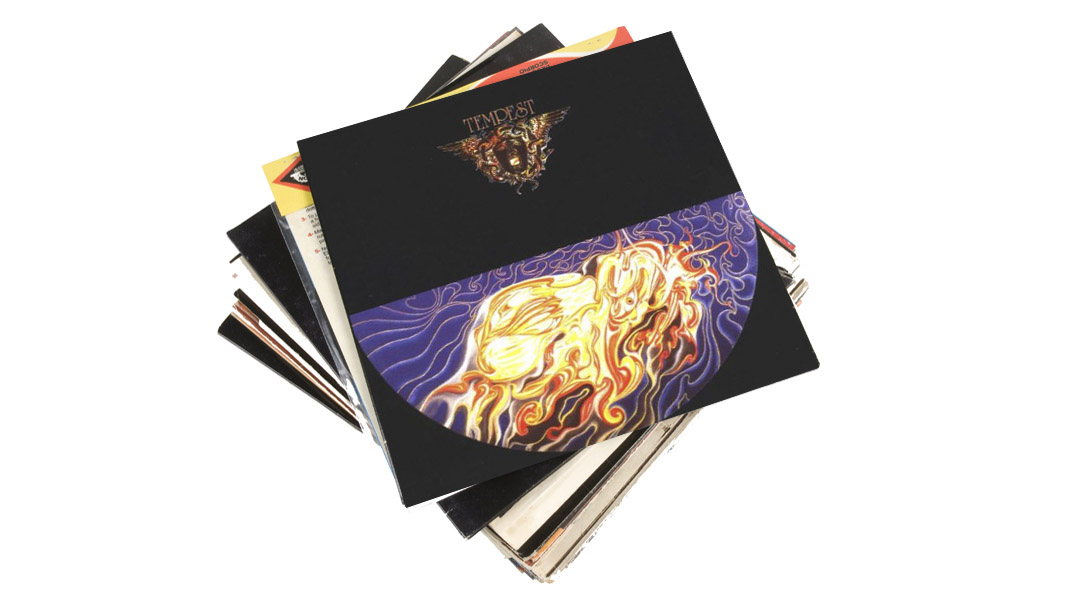
8. Tempest - Tempest (1973)
"All the guitar nerds where I used to live were raving about this band called Tempest, which had Allan Holdsworth on guitar.
"It was before his instrumental solo albums and before he was in ['70s prog-rock band] U.K. They made two albums back in the '70s. You can really tell Eddie Van Halen must have listened to these albums, because you can hear it in his playing - there's definitely some inspiration there...
"Holdsworth had more of a rock sound in this band, which is interesting. It was a bit more like plugging straight into the amp and dialling in more gain compared to his other stuff.
"There are some unbelievable solos on this record, so it's one people really need to check out. I just picked it up on vinyl the other day!"
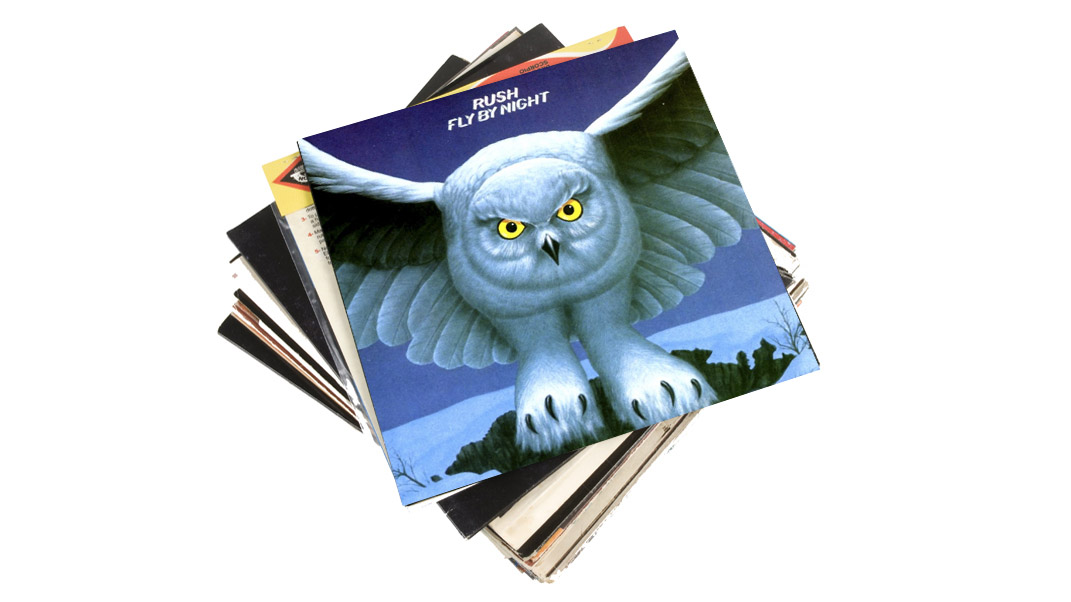
9. Rush - Fly By Night (1975)
"I remember playing along to Alex Lifeson's riff on the first track Anthem, because I was learning to play some Rush songs with my old band. Naturally, I wanted to dig into his style and learn some of his solos to help understand that way of thinking.
"And it took me some time to get into his lead playing. But the riffs just speak for themselves - everything he plays has this unique vibe to it. He's such a wicked player."
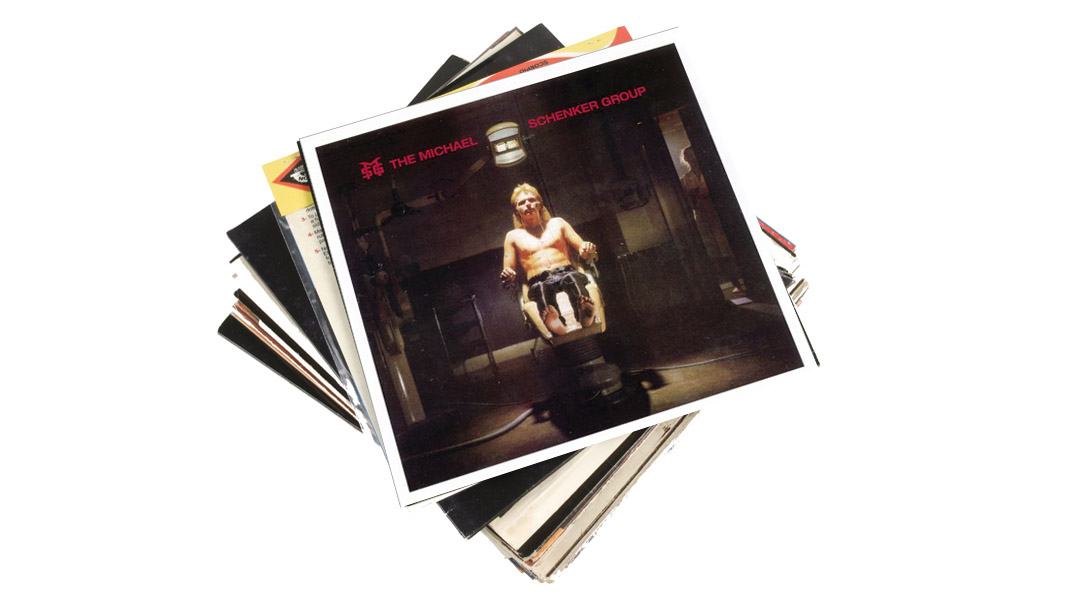
10. Michael Schenker Group - The Michael Schenker Group (1980)
"I love Into The Arena - that's the classic guitar track from this record.
"I'm a huge fan of the production on this first album; it has that early '80s sound before you had gated snares and all that stuff. It's a nice, compressed tube machine kinda production, and before we made Sorceress, that's the kind of sound we were talking about.
"Another Schenker album I used to listen all the time was Assault Attack, which also had this massive production. I'm not a fan of all the songs - it gets a bit cheesy in parts - but the title track is brilliant."
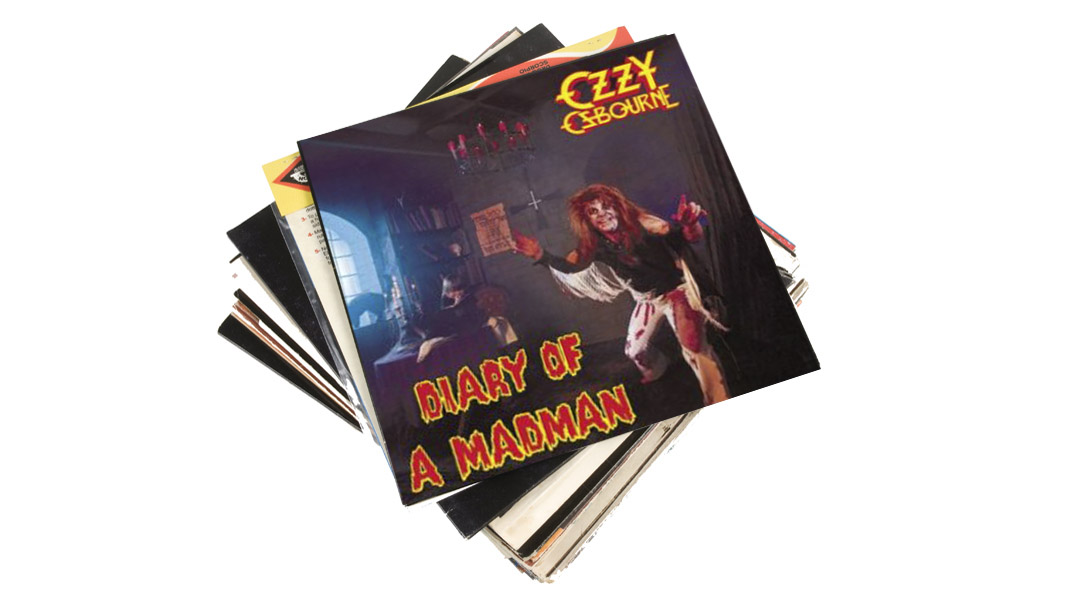
11. Ozzy Osbourne - Diary Of A Madman (1981)
"I've always felt the guitar work on this album is simply incredible. Somehow, it's just so dark, atmospheric and occult-sounding, so I'd have to say Diary Of A Madman was a very important record for me when I was growing up.
"Randy Rhoads was a hugely groundbreaking guitarist when you look at his approach to riffs and melodies. Especially on the title track, he played this really weird solo, but somehow it just worked."
Don't Miss
Opeth's Mikael Akerfeldt: my top 9 tips for guitarists
Mikael Akerfeldt on smashing his first guitar and onstage accidents
Amit has been writing for titles like Total Guitar, MusicRadar and Guitar World for over a decade and counts Richie Kotzen, Guthrie Govan and Jeff Beck among his primary influences. He's interviewed everyone from Ozzy Osbourne and Lemmy to Slash and Jimmy Page, and once even traded solos with a member of Slayer on a track released internationally. As a session guitarist, he's played alongside members of Judas Priest and Uriah Heep in London ensemble Metalworks, as well as handling lead guitars for legends like Glen Matlock (Sex Pistols, The Faces) and Stu Hamm (Steve Vai, Joe Satriani, G3).
